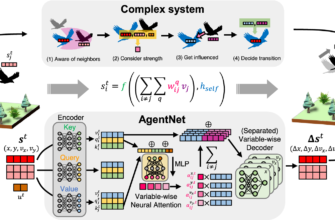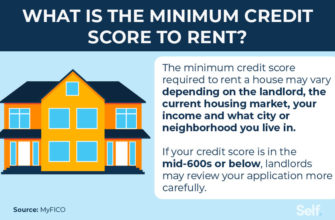When buying or selling a property, it is important to understand the various closing costs that are involved in the transaction. These costs can significantly impact the overall cost of the real estate deal and should be carefully considered by both buyers and sellers.
1. Mortgage-related closing costs:
- Loan origination fees: These fees are charged by lenders for processing and approving a mortgage loan.
- Appraisal fees: An appraisal is required by lenders to assess the value of the property being purchased.
- Inspection fees: Buyers may choose to have a home inspection done to identify any potential issues with the property.
2. Title-related closing costs:
- Title search fees: These fees are charged by a title company to search public records and ensure that the property’s title is clear and can be transferred.
- Title insurance: This insurance protects buyers and lenders from any potential title defects or claims against the property.
3. Attorney fees:
Buyers and sellers may choose to hire an attorney to oversee the closing process and ensure that all legal requirements are met.
4. Escrow fees:
An escrow agent holds funds and documents related to the real estate transaction until all conditions of the deal are met.
5. Other miscellaneous closing costs:
| Cost | Description |
|---|---|
| Recording fees | These fees are charged to record the deed and other necessary documents with the county. |
| Survey fees | A survey may be required to determine the property boundaries and ensure there are no encroachments. |
| Homeowners association fees | If the property is part of a homeowners association, there may be fees associated with it. |
What are closing costs?

Here is a breakdown of some common closing costs:
- Loan fees: These fees include charges related to the buyer’s mortgage, such as origination fees, application fees, and appraisal fees.
- Title fees: These fees are associated with the transfer of the property’s title from the seller to the buyer. They include title search fees, title insurance premiums, and recording fees.
- Taxes and insurance: The buyer may need to prepay property taxes and homeowners insurance for the first year.
- Attorney fees: If an attorney is involved in the transaction, their fees will be included in the closing costs.
- Home inspection fees: If the buyer chooses to have a home inspection, the cost of the inspection will be included in the closing costs.
Important: It’s important for buyers and sellers to carefully review and understand the closing costs associated with a real estate transaction. These costs can significantly impact the overall expenses involved in buying or selling a property. Working with a knowledgeable real estate agent or attorney can help ensure that all closing costs are properly accounted for.
Note: The amount of closing costs can vary, typically ranging from 2% to 5% of the purchase price of the property. However, it’s important to note that closing costs can also be negotiated between the buyer and the seller as part of their overall agreement.
Understanding the concept
Buyers’ closing costs:
Buyers are usually responsible for a variety of costs when purchasing a property. These costs may include:
- Down payment: The initial upfront payment made by the buyer towards the purchase price of the property.
- Loan origination fee: The fee charged by the lender for processing the loan application.
- Appraisal fee: The fee paid to have the property professionally appraised to determine its market value.
- Home inspection fee: The fee paid to a professional home inspector to evaluate the condition of the property.
Sellers’ closing costs:
Sellers also have certain closing costs that they need to consider. These costs may include:
- Real estate agent commissions: The fee that sellers pay to their real estate agent for their services in listing and selling the property.
- Transfer taxes: Taxes imposed on the transfer of property ownership from the seller to the buyer.
- Title insurance: Insurance that protects the buyer and lender against any potential issues with the property’s title.
- Attorney fees: The cost of hiring an attorney to handle the legal aspects of the transaction.
It is important for both buyers and sellers to understand these costs and budget accordingly to ensure a smooth and successful real estate transaction.
Components of Closing Costs
1. Loan-related costs: If the buyer is financing the purchase with a mortgage, there are several loan-related closing costs. These may include an origination fee, loan application fee, appraisal fee, credit report fee, title search and insurance, and loan origination points. These costs are typically paid by the buyer and can add up to a significant amount.
2. Attorney and closing agent fees: In some states, it is common for buyers and sellers to hire an attorney to oversee the closing process. The attorney’s fees can vary depending on the complexity of the transaction and the attorney’s hourly rate. Additionally, a closing agent or escrow company may be involved in the closing process, and their fees will also be included in the closing costs.
| Component | Description |
|---|---|
| Loan-related costs | Costs associated with the mortgage loan, such as origination fees and appraisal fees. |
| Attorney and closing agent fees | Fees for legal representation and assistance in the closing process. |
| Transfer taxes and recording fees | Taxes and fees associated with transferring ownership of the property. |
| Inspection and appraisal fees | Costs for inspecting the property and determining its value. |
| Insurance premiums | Costs for obtaining homeowners insurance and title insurance. |
3. Transfer taxes and recording fees: When a property changes ownership, there are often transfer taxes and recording fees that need to be paid. These charges are typically based on the sale price of the property and are usually split between the buyer and seller.
4. Inspection and appraisal fees: Before finalizing the purchase, it is common for the buyer to conduct a home inspection and an appraisal. The costs of these services are typically paid by the buyer and included in the closing costs.
5. Insurance premiums: Homeowners insurance and title insurance are important for protecting the buyer’s investment. The premiums for these insurances can be included in the closing costs.
It is important for buyers and sellers to review the closing cost estimate provided by the lender or escrow company. Understanding the components can help ensure that all the necessary expenses are accounted for and allow for a smooth closing process.
Factors affecting closing costs
- Purchase price: The purchase price of the property is one of the primary factors that determine the closing costs. Generally, the higher the purchase price, the higher the closing costs.
- Type of property: The type of property being bought or sold also influences the closing costs. Different types of properties, such as single-family homes, condos, or commercial properties, may have different closing costs associated with them.
- Location: The location of the property can impact the closing costs. Certain areas may have higher taxes or additional fees that need to be paid at closing, which can increase the overall costs.
- Mortgage loan: If the buyer is obtaining a mortgage loan to purchase the property, there may be additional closing costs associated with the loan. These can include lender fees, appraisal fees, and mortgage insurance premiums.
In addition to these factors, there may be other costs involved in a real estate transaction, such as title insurance, attorney fees, or home inspections. It is important for buyers and sellers to carefully review the closing cost estimates provided by their real estate agent or attorney to understand all the potential fees and expenses involved.
Calculating closing costs
There are several different types of closing costs that may be incurred during a real estate transaction. These costs can include:
- Lender fees: These fees are associated with obtaining a mortgage loan and may include origination fees, points, and appraisal fees.
- Attorney fees: If an attorney is involved in the transaction, their fees may be included in the closing costs.
- Title fees: These fees are related to the transfer of the property’s title and can include title insurance, title searches, and recording fees.
- Property taxes and insurance: The buyer may be required to pay a portion of the property taxes and insurance premiums at closing.
- Homeowner’s association fees: If the property is part of a homeowner’s association, the buyer may need to pay any outstanding fees or dues at closing.
- Other miscellaneous fees: There may be additional fees for services such as home inspections, pest inspections, and surveys.
Calculating closing costs can be a complex process, as the exact fees and amounts can vary depending on the specific circumstances of the transaction. It is recommended that buyers and sellers work closely with their real estate agent or attorney to ensure that all costs are accounted for. Additionally, buyers should compare loan estimates from multiple lenders to determine which loan option will result in the lowest overall closing costs.
Comparing closing costs

1. Lender Fees: One of the primary components of closing costs are the fees charged by the lender. These fees can include origination fees, processing fees, and underwriting fees. It is important to carefully review these fees and compare them with other lenders to ensure that you are getting the best deal.
2. Title Charges: Another significant portion of closing costs are the title charges. These fees include the cost of a title search, title insurance, and other related services. It is important to compare the fees charged by different title companies to ensure that you are getting a fair price.
| Fee Type | Average Cost |
|---|---|
| Lender fees | $2,000 – $4,000 |
| Title charges | $1,000 – $3,000 |
| Appraisal fees | $300 – $500 |
| Escrow fees | $500 – $1,000 |
| Recording fees | $100 – $300 |
Note: The average costs provided above are for illustrative purposes only and may not reflect actual costs in your specific area. It is recommended to obtain quotes from multiple sources to get an accurate estimate of closing costs.
3. Appraisal Fees: In many cases, a lender will require an appraisal of the property to determine its value. These fees can vary depending on the size and complexity of the property. It is important to compare the fees charged by different appraisers to ensure that you are not being overcharged.
4. Escrow Fees: Escrow fees are fees charged by a third party to handle the transfer of funds and documents between the buyer and seller. These fees can vary depending on the purchase price of the property. It is important to compare escrow fees from different companies to ensure that you are getting a competitive rate.
5. Recording Fees: Recording fees are fees charged by the government to record the transfer of ownership of the property. These fees can vary depending on the location of the property and the complexity of the transaction. It is important to compare recording fees from different jurisdictions to ensure that you are not being overcharged.
Strategies for reducing closing costs
- Shop around for lenders and service providers: Before finalizing a mortgage, it’s important to compare rates and fees from different lenders. This can help identify the best deal and potentially save thousands of dollars in closing costs. Similarly, it’s beneficial to obtain quotes from multiple service providers such as appraisers and title companies to ensure you’re getting the most competitive rates.
- Negotiate with the seller: Buyers can try negotiating with the seller to cover some or all of the closing costs. This can be particularly effective in a buyer’s market or if the property has been on the market for a while. By presenting a strong offer and demonstrating flexibility, buyers may be able to secure a contribution from the seller towards the closing costs. This can significantly reduce the out-of-pocket expenses at closing.
- Review the Loan Estimate and Closing Disclosure: The Loan Estimate and Closing Disclosure documents provided by the lender outline the estimated and final closing costs, respectively. It’s crucial to review these documents carefully and ask questions about any fees that seem excessive or unnecessary. By understanding the closing costs and challenging questionable fees, borrowers can potentially negotiate or request a reduction in certain charges.
By implementing these strategies, buyers and sellers can effectively reduce closing costs and save money during real estate transactions. It’s important to thoroughly research and analyze options to make well-informed decisions and maximize savings.
The importance of budgeting for closing costs
Understanding the components of closing costs
Calculating closing costs can be a complex task, as it involves considering various components that can vary depending on the location and type of property being purchased. Some common components of closing costs include:
- Loan origination fees
- Appraisal fees
- Title search and insurance fees
- Attorney fees
- Property inspection fees
- Recording fees
- Taxes and insurance premiums
Additionally, there may be other costs such as homeowner association fees, escrow fees, and prorated property taxes that need to be taken into account. It is essential for buyers to thoroughly review and understand the estimated closing costs provided by lenders and professionals involved in the transaction, so that they can budget accordingly.
Creating a realistic budget
Buyers should aim to create a realistic budget that takes into account the estimated closing costs, as well as other financial considerations such as down payment, monthly mortgage payments, and potential repairs or renovations. By accurately budgeting for closing costs, buyers can avoid any unexpected financial strain and plan for a successful purchase.
| Component | Estimated Cost |
|---|---|
| Loan origination fees | $1,000 – $2,500 |
| Appraisal fees | $300 – $600 |
| Title search and insurance fees | $500 – $1,000 |
| Attorney fees | $1,000 – $2,500 |
| Property inspection fees | $300 – $500 |
| Recording fees | $100 – $300 |
| Taxes and insurance premiums | Varies based on property and location |
By carefully considering these costs and seeking professional advice, buyers can ensure they have a realistic budget in place for the closing process. This will help them make informed decisions, negotiate effectively, and avoid any financial setbacks that could jeopardize the successful purchase of their desired property.
The importance of budgeting for closing costs
| Item | Average Cost Range | Description |
| Appraisal Fee | $300 – $500 | An assessment of the property’s value to determine its fair market value. |
| Home Inspection Fee | $300 – $600 | A comprehensive examination of the property to identify any potential issues or defects. |
| Loan Origination Fee | 1% – 3% of the loan amount | A fee charged by the lender for processing, underwriting, and funding the loan. |
| Title Insurance | $500 – $2,000 | Protection against any defects or claims on the property’s title. |
| Escrow Fees | $500 – $1,000 | Fees associated with the third-party escrow company handling the transfer of funds and documents. |
| Recording Fees | $50 – $500 | Fees paid to the county or city for recording the deed and other legal documents. |
| Survey Fee | $300 – $800 | A surveyor’s fee for verifying the property boundaries and identifying any encroachments. |
| Mortgage Insurance | VARIES | If your down payment is less than 20%, you may be required to pay mortgage insurance. |
| Property Taxes | VARIES | The annual tax assessed by the local government based on the value of the property. |
| Homeowners Insurance | $800 – $2,000 per year | Insurance coverage to protect against property damage and liability. |
When budgeting for closing costs, it’s essential to consider all the fees and expenses associated with buying a home. These costs can add up and should be factored into your overall budget to ensure a smooth and successful transaction. By being financially prepared, you can avoid unexpected surprises and ensure a stress-free home buying experience.
FAQs
What are closing costs?
Closing costs are the fees and expenses associated with the purchase of a property. They usually include expenses such as appraisal fees, attorney fees, title insurance, property taxes, and loan origination fees.
Why is budgeting for closing costs important?
Budgeting for closing costs is important because it allows you to plan and allocate funds for these expenses. By having a clear understanding of the costs involved, you can avoid any last-minute financial surprises and ensure that you have enough money to cover all the necessary expenses.
How much should I budget for closing costs?
The amount you should budget for closing costs can vary depending on several factors, such as the purchase price of the property and the location. As a general rule of thumb, closing costs typically range from 2% to 5% of the purchase price. So, if you are buying a property for $200,000, you should budget around $4,000 to $10,000 for closing costs.
What are some common closing costs that I should be aware of?
Some common closing costs include appraisal fees, attorney fees, title insurance, property taxes, loan origination fees, and inspection fees. It’s important to review the closing disclosure document provided by your lender to get a clear breakdown of all the costs you will be responsible for.









